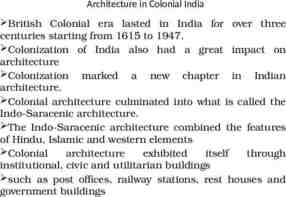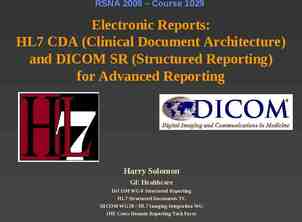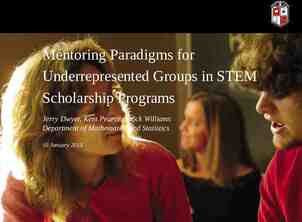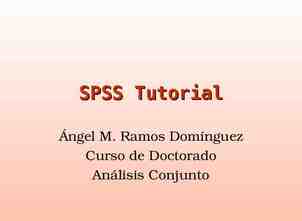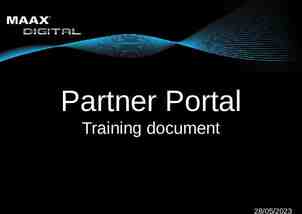Meet the Teacher Tuesday 07th September 2021
24 Slides981.28 KB

Meet the Teacher Tuesday 07th September 2021

Year Five Staff Miss Longden (Teacher) Mrs Phillips (Teaching Assistant) Mr Mooney – Freestyle (Tuesday Mornings)

Routines Children are allowed into school at 8:40 am. Please make sure children are in school on time and transitions are seamless. Morning work is completed, and the register is taken at 9:00 am. There are assemblies on Mondays and Fridays, at 9:00 am. Celebration Assembly is on a Friday. Parents can attend. Morning playtime is at 10:30 am. Only healthy snacks are permitted. Lunch is from 12:15 pm-1:15 pm. Please ensure lunches coming into school are healthy. The end of day collection is at 3:15 pm from the link corridor exit. Please inform the class teacher if another adult is

Walking Home Please complete the letter and return it to the school office. Without the returned permission slip, children can’t be released from school. Please be specific with the days. Do keep the office updated of any changes to the arrangements.

Water Bottles We are a water only school! Please provide a clearly named water bottle. Bottles are kept in the classroom. Bottles go home at the end of the day.

PE Mondays (swimming) Tuesdays (Freestyle) Indoor and outdoor kits need to be in school on Tuesdays and go home on Fridays. All jewellery must be removed for PE. Earrings must be removed before lessons (tape is not permitted). Shoulder length hair must be tied back.

Swimming Swimming lessons are on Monday afternoons. We will walk to Northampton High School. We will have an early lunch. All jewellery must be removed. Swimming hats are compulsory. No hat, no swimming! No swimming trunks or two pieces are allowed. Children will change into their swimming kit at school. Children will change into their school uniform at the pool. Bring a healthy snack for after swimming. More information will follow soon.

Homework One piece of English work weekly Arithmetic tasks weekly Reading - minimum 4 times per week for 10 - 15 minutes. Some tasks maybe set via Purple Mash and Sumdog. Homework is set on a Friday. Hand in by the following Wednesday. If children read a minimum of 3 times a week, they will receive a reading token for their class.

Uniform All items need to be clearly named. Prompt children to dress themselves at home. Encourage children to be smart, e.g. shirts tucked in and ties on. Small studded earrings, a basic wrist watch and religious items of jewellery are permitted in school. Earrings must be removed before PE lessons. Both indoor and outdoor PE kits need to be provided. Hoodies are only for PE lessons. You can request a uniform list from the office

1,2,3 Magic This is our school behaviour strategy for promoting positive behaviour. House points, class reward tracks and class Proud Clouds are some of the strategies for positive praise. Warnings are given, if children are observed not following school rules “that is 1, that is 2 ” “That is 3” equals a consequence. Consequences are personal to the individual child, e.g. missing part of a playtime. Immediate 3 Staff can skip stages 1 and 2 for unacceptable behaviour. Behaviour incidents are formally recorded and monitored. Parents are contacted and Mrs Stevens or a senior member of staff is notified.

Correspondence There are different forms of correspondence: Open door policy Curriculum news provides an overview for every half term Notes in Reading Records Weekly school newsletters Text messaging Email address - [email protected]

Reading Children will read in class everyday. Books and reading records need to be in school everyday. Two books- one book from the classroom reading area and one library book. Children can change their class reading book during the school day. Please make comments in the reading records. Weekly Library visits. 10-15 minutes at least four times a week. If children read a minimum of 3 times a week, they will receive a reading token for their class.

Mornings Mornings are busy and very structured. Mornings consist of: A morning task Registration Assembly SPAG and English Break Mathematics

Afternoons Creative and knowledge and understanding of the world subjects are covered in the afternoons. These include: History Geography Art and DT Computing Science Music Re PE Spanish

Curriculum Throughout the curriculum, the children will be encouraged to: develop their skills at working with a partner. develop their skills at working as part of a small group. develop their independence within the classroom and their own learning.

Year Five Reading Expectations The Year Five expectations are that children can: Talk about a wide range of books and discuss the features. Read books that are structured in different ways. Read accurately and check understanding. Recommend books to others, giving reasons. Identify simple themes. Identify features of non-fiction and their purpose, evaluating how effective they are. Identify significant ideas, events and characters, using the text. Prepare poems to read aloud to perform. Recite poems by heart. Summarise the key points in a text, justifying my opinion. Distinguish between fact and opinion. Discuss and evaluate how authors use language

Year Five Writing Expectations The expectations are that children: Spelling: use prefixes and suffixes and understand the guidance for adding them. spell some words with ‘silent’ letters [for example, knight, psalm, solemn]. continue to distinguish between homophones and other words which are often confused. use knowledge of morphology and etymology in spelling and understand that the spelling of some words needs to be learnt specifically. use dictionaries to check the spelling and meaning of words. use the first 3 or 4 letters of a word to check spelling, meaning or both of these in a dictionary. Handwriting and presentation: write legibly, fluently and with increasing speed by: choosing which shape of a letter to use when given choices and deciding whether or not to join specific letters. Composition: plan their writing by: identifying the audience for and purpose of the writing, selecting the appropriate form. noting and developing initial ideas, drawing on reading and research where necessary. in writing narratives, considering how authors have developed characters and settings in what pupils have read, listened to or seen performed. draft and write by: selecting appropriate grammar and vocabulary, understanding how such choices can change and enhance meaning. in narratives, describing settings, characters and atmosphere and integrating dialogue to convey character and advance the action. using a wide range of devices to build cohesion within and across paragraphs. evaluate and edit by: assessing the effectiveness of their own and others’ writing. proposing changes to vocabulary, grammar and punctuation to enhance effects and clarify meaning. ensuring the consistent and correct use of tense throughout a piece of writing. ensuring correct subject and verb agreement when using singular and plural, distinguishing between the language of speech and writing and choosing the appropriate register. o proofread for spelling and punctuation errors. o perform their own compositions, using appropriate intonation, volume, and movement so that meaning is clear.

Year Five Maths Expectations In Year Five, the expectations are that able to :the value of each digit. Read, write, order and compare children numbers to at leastare 1,000,000 and determine Count forwards or backwards in steps of powers of 10 for any given number up to 1,000,000. Round any number up to 1,000,000 to the nearest 10, 100, 1,000, 10,000 and 100,000. Read Roman numerals to 1,000 (M) and recognise years written in Roman numerals. Add and subtract whole numbers with more than 4 digits, including using formal written methods (columnar addition and subtraction). Add and subtract numbers mentally with increasingly large numbers. Solve addition and subtraction multi-step problems in contexts, deciding which operations and methods to use and why. Identify multiples and factors, including finding all factor pairs of a number, and common factors of two numbers. Know and use the vocabulary of prime numbers, prime factors and composite (non-prime) numbers. Establish whether a number up to 100 is prime and recall prime numbers up to 19. Multiply numbers up to 4 digits by a one- or two-digit number using a formal written method, including long multiplication for two-digit numbers. Multiply and divide numbers mentally drawing upon known facts. Divide numbers up to 4 digits by a one-digit number using the formal written method of short division and interpret remainders appropriately for the context. Multiply and divide whole numbers and those involving decimals by 10, 100 and 1,000. Recognise and use square numbers and cube numbers, and the notation for squared ( 2) and cubed (3). Identify, name and write equivalent fractions of a given fraction, represented visually, including tenths and hundredths. Recognise mixed numbers and improper fractions and convert from one form to the other and write mathematical statements 1 as a mixed number. Multiply proper fractions and mixed numbers by whole numbers, supported by materials and diagrams. Recognise and use thousandths and relate them to tenths, hundredths and decimal equivalents. Round decimals with 2 decimal places to the nearest whole number and to 1 decimal place. Read, write, order and compare numbers with up to 3 decimal places. Solve problems involving number up to 3 decimal places. Recognise the per cent symbol (%) and understand that per cent relates to “number of parts per 100”,

Year Five Marking Work will be ticked and checked after and during each lesson. Verbal feedback and reviews will take place every day during lessons. Children will work together during lessons and provide feedback. Good work will be shared. Self and peer marking are promoted. Common misconceptions will be addressed during or after the lesson. Next step challenges will be provided to consolidate and extend children’s skills and knowledge.

Reading at Home READ, READ, READ! Both listening to your child read and reading to them regularly. Ask key questions Why has it happened? Why did the character act in this way? Find another word which also means Is this sentence true or false? Use a variety of reading resources, encourage children to read for pleasure Model correct pronunciation – get them to look at your face when you speak to them, this will help with their spelling Model correct use of expression Use the key questions to help your child develop greater inference skills Use a dictionary and discuss the meanings of new words.

Trips At least one trip Visitors coming into school

End Please remember I am available at any time before or after school if you would like to discuss anything with me however trivial it may seem. If you would like to discuss things in greater length we can arrange to meet after school at a time convenient for us both.

Any Questions


